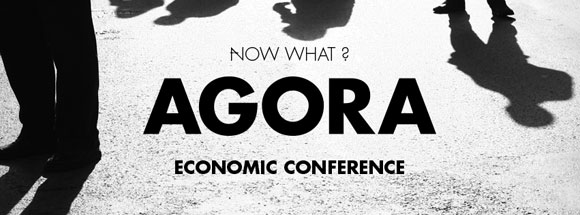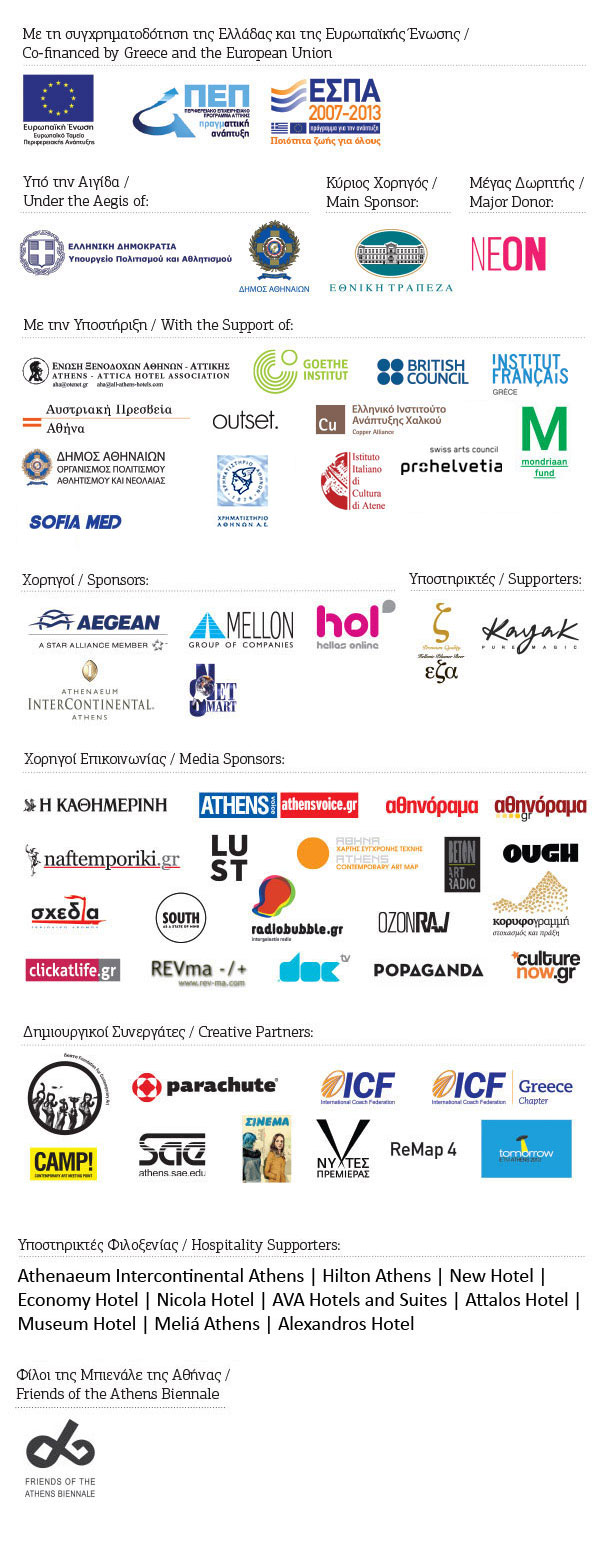Date: October 9th, 2013 7:29:08 p.m.
| In case you cannot read this newsletter please press here |

|
| For the greek version of this newsletter please press here |
|
"Now What?" AGORA Economic Conference The economic crisis has caused a crisis in economics. Old theories and models no longer work. Central banks are now pursuing unprecedented, even radical economic policies, aiming to stabilize the global economy. But will they succeed? Shifts in economic theory are underlying and influencing these policy moves, leading to a new understanding of what causes financial crashes, with less consensus of how to recover from them. Pondering this turning point, AGORA is tackling these economic questions: it is staging an economics conference, featuring influential economists from around the world, who will convey, as well as debate, current economic thinking about "the crisis" and possible ways forward. The date of the conference coincides with the World Bank / IMF Annual Meeting in Washington. The setting here, however, is not the site of global financial power but instead, the building of the National Bank of Greece in Sofokleous 8-10, that was for decades the former Athens Stock exchange, the site of the 4th Athens Biennale. The conference offers several innovations: it is the first to bring mainstream well known economists into an art world setting. The second innovation is that these sorts of conferences are typically "closed" whereas this one is fully open to the public, and they are encouraged to participate. This is in keeping with the overall approach of AGORA, as a forum for the exchange of views, and a site of fermentation between professionals from different backgrounds. At a time when the financial crisis in Greece and elsewhere is reaching a highpoint, the 4th Athens Biennale 2013 AGORA cannot but respond to this bleak situation through a pertinent question: Now what? |
Participants
Paolo Manasse Professor of Macroeconomics and International Economic Policy at the University of Bologna. |

FormatThe economic forum will consist of a half day event of informal talks on the crisis. Each guest will give a short presentation (approx. 20 mins) and then answer questions from the audience. Their remarks will be based on their own research and therefore the content will be substantive (versus "pop" economics). Lecture topics include the origin of the Euro debt crisis, the ongoing labor crisis, discussions about the effectiveness of austerity vs. fiscal expansion as well as the experiences and lessons of other afflicted countries. These are not abstract academic issues in Greece today and instead are impacting millions of people's lives. |
Agenda
Overview of the crisis |

|
4th ATHENS BIENNALE 2013 AGORANational Bank of Greece Building, 8–10 Sofokleous str.CAMP Contemporary Art Meeting Point, 4 Eupolidos & 2 Apellou str. 29th September – 1st December 2013 |
OPENING HOURSNational Bank of Greece Building, 8–10 Sofokleous str.CAMP Contemporary Art Meeting Point, 4 Eupolidos & 2 Apellou str. Tuesday–Friday: 13.00–21.00 Saturday & Sunday: 10.00–22.00 |
ADMISSIONAGORA offers a season ticket for the exhibition for 8 euros. The season ticket allows admission throughout the two months of the 4th Athens Biennale and for all the events hosted by the AGORA. Additionally, AGORA offers a daily ticket for 5 euros and a discount ticket for 3 euros, for students who hold a student ID, teens 12–18 years old and senior citizens (70 years old or above). Holders of the Manpower Employment Organization (OAED) card, students of the Athens School of Fine Arts, members of the Chamber of Fine Arts of Greece, ICOM, AICA, IKT as well as special needs attendants are granted free entrance with appropriate ID. |
| For high resolution photographs, please visit the PRESS page of the AGORA webpage and the AGORA Facebook , Twitter, Instagram, Pinterest, Tumblr, YouTube, Vimeo pages. |
|
For more information please contact: Katerina Stavroula, Press Officer T: 0030 210 52 32 222, 210 52 32 224, Email: press@athensbiennial.org |
 |
|
<< Previous: 4th Athens Biennale 2013 AGORA WEEK 2 |
| Archive Index | |
Athens Biennale
Subscribe to Athens Biennale: